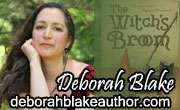Paganistan: Notes from the Secret Commonwealth
In Which One Midwest Man-in-Black Confers, Converses & Otherwise Hob-Nobs with his Fellow Hob-Men (& -Women) Concerning the Sundry Ways of the Famed but Ill-Starred Tribe of Witches.
A Cauldron Bubbling Over: Some Thoughts on Reading Gus diZerega's 'God is Dead, Long Live the Gods'
I am a cauldron bubbling over. I've just finished reading Gus diZerega's God is Dead, Love Live the Gods: A Case for Polytheism.
(You can see some my reflections before reading the book here.)
I won't at this point attempt a full-scale review of this rich and nuanced work. (Stay tuned.) One thing, though, is clear to me: that to do justice to What Is in all its dazzling multiplicity may well require multiple theologies.
(Outrageous as such a suggestion might be, it somehow seems consonant with a worldview grounded in the Many.)
I would suggest that we need at least two theologies, one for the Elder Gods, one for the Younger: to vastly oversimplify, the gods of “nature” and the gods of culture, respectively.
Though both are gods, They're not the same.
The ancestors regularly distinguished between, if I may, two modalities of divinity. In most surviving pantheons, the Olden Gods, the “nature” powers, tend to get relegated to the background; it's the Younger Gods—the ones with human faces—that stand in the forefront with their temples, cultuses, and fancy myths. As we think through the implications of modern paganism, we need to keep this distinction in mind.
Different gods, different theologies.
DiZerega's work deals almost exclusively with the Younger Gods. As he sees it—to (perhaps unfairly) oversimply his rather more nuanced thought—they are, essentially, “egregores”: creations of the human mind. (This, of course, is not to deny that they have an existence and a reality of their own.) That's why they vary so much from culture to culture.
Like virtually all other contemporary pagan theologians, his treatment of the Elder Gods is minimal, in this case, a single sentence: “We do not often, if ever, see the same deity manifesting independently in very different cultures, except in very general terms, such as Mother Earth” [diZerega 192].
Yet surely this is not so. Earth, Sun, Moon, Sea, the Winds, Thunder....I could go on. These gods arise in pantheon after pantheon because they are the undeniable ground of reality. (That They should show Themselves differently to different people in different places should surprise no one.) They are not egregores, though egregores may form around Them. (In this instance, one can hardly avoid thinking of grit and pearls.) We see here a clear distinguishing characteristic of the Old Gods: They may not be understood without reference to the non-human world.
These categories of gods, Younger and Elder, are not, of course, mutually exclusive. Take, for example, the Yoruba and Afro-Diasporic goddess Oshún. As an Elder Goddess, she is goddess of the River Oshún, in what is now Nigeria. As a Younger Goddess, she is goddess of love, beauty, female sexuality, etc. As I see it, the danger lies in the detachment of one from the other.
Perhaps the human mind is inherently narcissistic. The Younger Gods are dangerous in the same way that Book Religions are dangerous. When the human mind talks to itself, we can convince ourselves that we, and our needs, are at the center of things.
That's why we need the Older Gods, the wild ones. They keep us honest. They constantly remind us that we're not at the center; that the good life lies in maintaining healthy relationships with the non-human world.
The ancestors in their wisdom acknowledged the divinity of Gods both Elder and Younger, and it surely behooves us to do the same. But if the Younger Gods are, indeed, thought-forms, children of the human heart—even if powerful and enduring ones—then, when we go, they will accompany us on our great journey into Non-Being.
Not so the Elder Gods. They were here long before us, they gave rise to us, and they'll be here long after we're gone.
Me, I'm a witch of the Tribe of Witches. We witches have always been a wild lot, unruly.
I don't know about you, but it's clear to me on which side of the hedge my sympathies lie.
Gus diZerega (2021) God is Dead, Long Live the Gods; A Case for Polytheism. Llewellyn.
Comments
-
 Friday, 01 April 2022
Friday, 01 April 2022Actually I do not believe the younger gods are egregores or thought forms. There is a aspect of the latter in them, which I think is why they manifest in so many different aspects and ways. But as I tried to make clear, and maybe should have made even clearer, encountering a deity is encountering something that is experienced as more real than we are. That isn't a thought form which is entirely a product of human consciousness. This discussion is on the latter part of the book.
-
Please login first in order for you to submit comments





















I wrote on what you are calling the Elder Gods back in 2015, and actually pointed people to your writing. I specifically define that they are not gods, but rather powers older, bigger, more incomprehensible than gods. But your model works as well.
https://atheopaganism.wordpress.com/2015/10/14/the-powers-of-an-atheopagan/